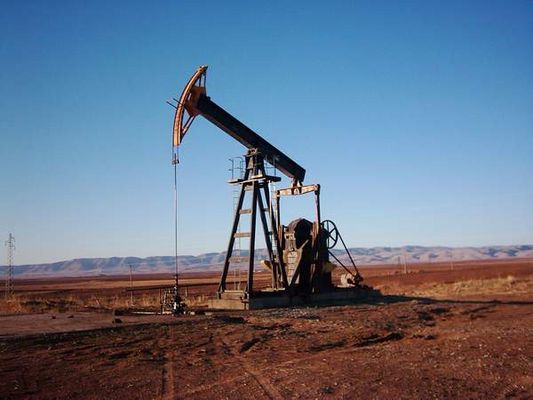A reluctant decline of violence on the fronts of the Syrian conflict over the past few years brought a flickering hope for an improvement of the overall situation in the country battered by the almost decade-long conflict. This positive impulse, however, failed to meet the expectations: both the government and opposition areas continue to suffer from a severe economic crisis. The northeastern provinces run by the Syrian Kurds were also affected by the collapse of the economy. Despite the control over most of the country’s oil fields the Autonomous Administration of North and East Syria (AANES) experiences difficulties in exporting the fuel it produces. Although the trade with the Syrian government and the opposition provided some income, it proved to be unstable and not so lucrative as selling the oil abroad. In pursuit of profit, the Syrian Kurds have found an improbable partner in their archenemy—Turkey—while the Iraqi Kurdistan’s Barzani family provided mediation between the two sides.
Improbable Alliance
Sources with knowledge of the smuggling operation claim that the leadership of the Syrian Democratic Forces (SDF) and the Turkish intelligence managed to reach an agreement on exporting the Syrian oil to Turkey via the Kurdistan Region. The deal conveniently had no impact on Ankara’s stance on the SDF: Turkish politicians including president Recep Erdogan routinely label the SDF fighters as “terrorists” in the media and threaten to “destroy all terror groups” near its borders. It would seem that the SDF found enough flexibility to take a pragmatic approach that was reciprocated by the Turkish authorities wary of domestic economic struggles.
On the contrary, Barzani’s involvement in the deal is not unexpected in the least. During almost two decades in power the influential family has systematically strengthened commercial ties (largely based on the oil trade) between the Kurdistan Region and Turkey, a source of perpetual annoyance for the Iraqi government who seeks to claim a share of the profits.
All of former president of the Iraqi Kurdistan Regional Government (KRG) Massoud Barzani, his son and current KRG prime minister Masrour Barzani, as well as Massoud’s nephew Nechirvan Barzani, who serves as the President of the Kurdistan Region, have been accused of involvement in shady fuel export operations before. Besides using the oil profits for acquisition of lavish real estate in the United States in Europe the Barzanis were also allegedly tasked with transporting the Syrian oil for an American Delta Crescent company who struck a deal with the SDF this August.
It appears that the agreement between Turkey, the SDF and the Barzani family runs parallel to the deal between the SDF and Delta Crescent. It is not clear whether the Americans were notified of the already existing export scheme by their Kurdish allies.
To cut a long story short, the sides managed to find an equilibrium that allowed the common interests to prevail, and the Syrian oil started to bring profit to all the parties involved.
Oil Journey
The complex route that takes the Syrian oil to Turkey begins at the oil fields located between Rmailan and Tel-Adas in Hasaka province where the crude oil is produced and loaded into tank trucks that deliver it to the Taramish refinery. After that the oil is smuggled into Iraq via two main routes.
The first route runs along dry riverbeds before reaching the Semalka border crossing in northeastern Hasaka, while the second involves tank trucks with Iraqi number plates that travel to Al-Walid border crossing and then to Duhok and Erbil provinces in Iraq. The trucks used for the smuggling are operated by Naji company based in Duhok city. From Iraq, the oil is exported to Turkey by a firm named Aslan Oglu, a transport company that works in Syria, Iraq and Turkey. Around 200 trucks, or 6,000 tons of oil, reach their destination daily.
Moreover, a third route has been put into action this October after an additional agreement between the SDF and the Turkish intelligence. The route connects Tel-Adas with the border city Qamishli and allows smuggling up to 9,000 tons of oil a day.
The smuggling of the Syrian oil benefits all of the participants. The Syrian Kurds have secured a stable export market and the Barzanis have prevented the appearance of a potential competitor by mediating between the SDF and Turkey, who received cheap oil. The only one losing seems to be Syria itself: while its natural resources are smuggled out of the country and the profit ends up in the pockets of the smugglers, the economic recovery and postwar reconstruction remain impossible.
Ahmad Al Khaled is a Syrian freelance journalist whose work has appeared in The Jerusalem Post and Global Security Review.







